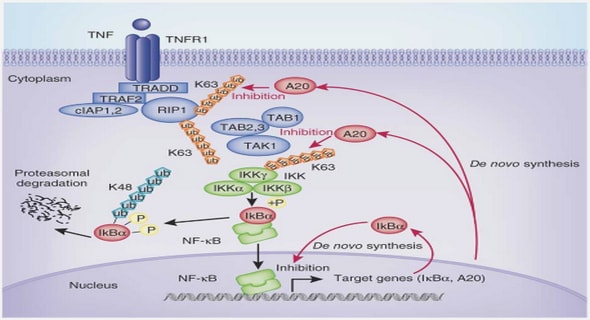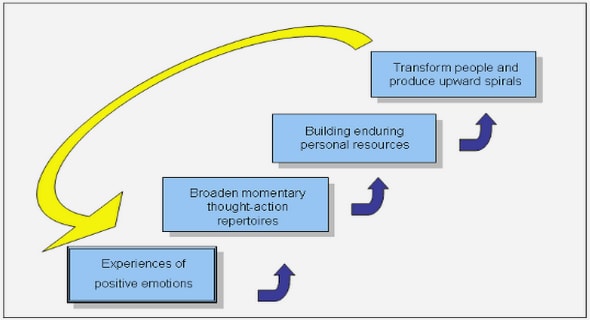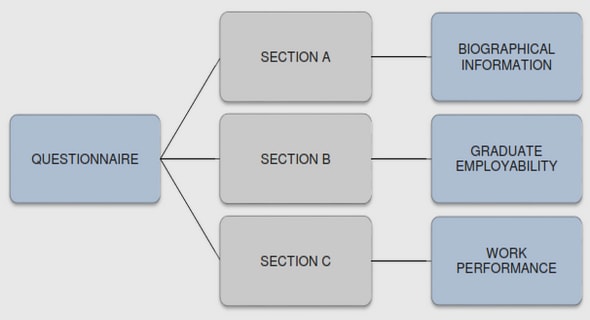Get Complete Project Material File(s) Now! »
CHAPTER FOUR:Migration and gender
Introduction
This chapter provides an overview of the research findings which are presented in greater detail in the next three chapters. It examines the sociological and political contents within with the young women negotiate changing gender relationships in both Sri Lanka and New Zealand. A significant finding was about how these women negotiated gender relationships as daughters to their parents within the discourses of Sri Lankan family relationships and gender norms. It describes the gender role changes that were experienced by these women as seen through their own eyes. I focus on the research topic and present an overview of the framework for the theoretical analysis of Sri Lankan gender relationships and gender indicators. Secondly, I examine the key changes to the lives of women as shown through their own accounts. These show that the women repositioned their gendered relationships and negotiated significant shifts in these relationships as a result of their participation in the labour market in New Zealand.The women in this study are urban, upper middle class, highly educated and professionally successful. Being well-educated and coming from this social class the women are an advantaged social group in Sri Lanka. As migrants, their move to New Zealand is that of the privileged young generation of developing countries. Unlike some migrants, these women have three key advantages: English language skills, financial resources, and tertiary educational qualifications, advantages which enable them to engage with the knowledge labour market. The young women are exposed to the wider global world and are included as professionals in the new social context of New Zealand. This inclusion enables them to feel freed from restrictions which were traditionally imposed on them in Sri Lanka. Now, they have the opportunity for greater individual freedom. Moving away from the controlled Sri Lankan cultural context gives them freedom to make choices and act as autonomous women. Changing the geographical location in which they were more restricted, the women do not need to play submissive roles or be passive women anymore. They are very much autonomous actors within the knowledge work force. Being members of respected professions and with well-paid positions gives a sense of freedom. This has meant that the young women experienced changes in their attitudes and beliefs towards gendered relationships. The changes occurred within the work environment which is created by the global labour market and as they adjusted to that environment. As young women in the 21st century their personal interests were aligned to the way of life of contemporary young women in developed countries (See the chapter seven). Within the three areas of work, society and lifestyle the women located themselves as autonomous individuals. In making the decision to settle in New Zealand they choose to change their personal and public selves to fit with that context.
Reasons for migration
The young woman called Nimmi explained why she wanted to come to New Zealand. The account shows her motives in starting a new life and her desire to live as an independent young woman away from the family home. Achini: The main reason was… to leave Sri Lanka… I think that mainly to find a good job. Because they don’t want to value our education qualification yah everything depends on political favor. So, after my graduation, I decided to go somewhere where my educational qualification was valued than in my own country. The particular reason to move to New Zealand was…I think that the educational opportunities. Because, I needed to do further study somewhere in a developed country. Then I decided to forward an application to New Zealand for a job. There are some opportunities and advantages. Main is job opportunities, and connection with other different nationalities. It’s more than in Sri Lanka. Now in Sri Lanka there are many nationalities present but it has very few effects on our daily life. Here there are multiple nationalities, ‘Kiwi’ people like Pilipino, Indian, Fijian, Cambodian and other Asians…In my work place also when you go there a lot more nationalities… different colour and languages. It’s very interesting thing to be with such different people in the same place. Yah…its advantage of having different ethnicities or nationalities in New Zealand society. But they are living with good understanding… you know. It’s exciting! And then we go with them. We could go out like often. Sometimes I have some friends to my apartment. We enjoy with them in parties or some events like… ya. That’s good opportunity to have experience for us to live in the wider society. Even we can get more education opportunities that are very rare in Sri Lanka. You can study while you are working…Not only one thing but also so many things. Both Achini and Hiranya came to New Zealand for further higher education. However, they also wanted, as Hiranya mentioned, to be away from home and to enjoy an independent life. Hiranya: I wanted to be free like a bird. Probably, I have fulfilled my parents’ all kind of hopes. I did not waste their effort for my success…and then, I needed to do, what I want to do, for my entire life. Thanuja: I got much more freedom here than at home, where I am not allowed to enjoy freedom in many aspects. There were some restrictions for us. My parents and I were focused on my studies…getting excellent results. The main task was getting through university entrance…I did not go anywhere without my parents or an adult family member. Wherever I go my mother is always inquiring…what I am doing. With whom am I studying or chatting? With friends? Like that (she said with a smile). But here…there are no bodyguards. I can drive myself at midnight. I have to look after myself. I earn…and I spend. My work…my own flat…my decisions. Everything I do is what makes me happy. Thanuja enjoys the freedom away from her parents’ intervention. She believes the parents’ constant attention can inhibit the growth to independence of younger generation-something that she values. Sanjula and Thanuja found, ‘very good jobs’ in the field where they are working in New Zealand. They would not give up such positions to return to Sri Lanka because they don’t want to return to a place where women traditionally have a subordinate position within the patriarchal family structure. If they did return, they would find it difficult to readjust to the norms of traditional Sri Lankan culture. Several of the young women expressed a reluctance to return to these traditions. They resisted the distinct gender boundaries which they saw as unjust and disrespectful of the dignity of women as human beings. They actively promote their workforce participation rights and apply them in the personal lives. They are more autonomous and they have developed strong characters which were not developed by their parents in the traditionally structured Sri Lankan family setting. The women in the study come from different religious contexts: two are Buddhist, two are Catholic, while two have no religion affiliation but come from a Buddhist family background. Only two women, one Buddhist and one Catholic, spoke defending the traditional roles and responsibilities of a woman seeing it as their inherited position or ‘real nature’. They spoke about the ‘lack of opportunity and work place flexibility’ and the difficulties of women in pursuing both professional aspirations and their obligations to family and home. However, three of them criticised the ‘racist, extremist religious ideologies’ which appear to be ‘a romantic model’ in contemporary Sri Lankan society. The Buddhist and the Catholic said that weddings, almsgiving, church masses, and other significance religious celebrations embedded the cultural imagery of Sri Lanka with women required to hand on such legacies for future generation. The other women were more neutral in comparison about religious and cultural identification. They had adapted more to popular youth culture and its secularism and were comfortable with the shift away from traditional religious constraints. All the young women in the study have chosen New Zealand as their home. They left behind their parents and none are prepared to return and live with the parents. During the interviews I asked them, ‘If you could choose any country as the best place to settle, which country would you chose? All the women chose to settle in New Zealand and the reasons for their choices were very similar. Sanjula: There are very good opportunities in Sri Lanka in my field. But some issues, like long term political conflicts, the downfall of the economic sector discourage me, not only me actually, most of the young generation professionals are discouraged by the situation in Sri Lanka. Once, I had a hard time there. After my move to New Zealand, I’ve got very encouraging feedback and now I feel I’m so strong enough to put up with anything. I am holding down a key consultant position in a particular company. It is big company. I try to do my best for the best achievement in that field. I’m flying here and there to different domestic destinations with busy work, sometimes, to Australia and African countries. Even though, I am happy to work with such tension and there are so many challenges and much hard work, but I enjoy my work and life. So, there is no point…I would not go back home. She enjoys her position. It is important to her that she thinks and acts as a responsible professional. Her position within such a highly recognised profession makes her determined to be in New Zealand. The young women were initially intrigued by the liberal thinking of Western women. Asanka: I am doing well my job and…having a good salary. I am thinking to improve my career field. My company gives me opportunities to get extra qualities and skills. So I want to get more experience…career wise through the seminar and workshop. Already I have attended such workshops and got certificates which are significant career wise. I want to reach my career target and the target of my company. The most important thing to me was I wanted to live a free life. I mean…that is not a bad lifestyle but I want to enjoy my freedom. This country is a very good place for liberal thinkers. My thinking pattern has shaped by the Western values because of my school background. It is very English or colonial type. Actually, my imagination has developed within English literature. As a teenager I wanted to be like Western teenagers. My teachers have punished me because they thought my behaviour was ‘naughty’. In their eyes I am more like a western girl. It was annoying. That’s our society and how they think. That’s why I dreamed to live in a Western country. Over time liberal attitudes and behaviours became more familiar to them showing a way of life that they wished for themselves. Within Sri Lankan culture it is expected that women are responsible for the transmission of cultural values and the educational success of their children. They must provide emotional support and care for husbands and family elders while at the same time developing their own abilities that are recognised as a family asset. Contrary to these social expectations the young professional women in this study have chosen to be single or postponed their marriage and to identify as “Kiwis” in New Zealand. One of the key reasons for this decision is their plans for career expansion and multi-area skill upgrading. These plans which affect their personal lives in significant ways. This is what Luke (2001) referred to as the contradictory dual self that women have to maintain within contemporary society, a duality which is difficult to balance. One of the women (Nimmi), in responding to my question, ‘What are your hopes for having your own future family’ said; You know…nowadays, for a woman, motherhood and raising family is a choice between career and personal life. It’s depending on what you choose; you have to pay the price. If you choose one, you lose other… Thanuja and Achini’s responses to the same question was very similar to Nimmi’s. Thanuja: I can do anything by myself. I am confident about myself. I am strong enough to keep on my personal and employment responsibilities. Marriage…sometimes limits your capacity. I want to make decisions about my life. I think if you are married it’s difficult to maintain your own opinion. I mean…it’s like making some kinds of decision and take action about your life. Sometimes women are powerless…you know. Achini: I think for a woman marriage is meant to be a way of upward social mobility. It’s typical some women look forward to a better future by a marriage because of their economic inability. Usually parents encourage girls for higher education…because they may hope that better education provides better marriage opportunities for girls. If so it is a huge relief for parents. I think if you are well enough you can live alone. You can care for yourself. I know some of my married friends are always worrying about their husbands and kids. First you have to think of your family not yourself. They have to prioritiese the family. That’s the role of women but not of men… bonds and endless responsibilities. What happened to my freedom? At the moment my main focus is my career…and I enjoy my life and freedom. It’s my choice. These responses indicate that they have chosen their careers as the main focus for their lives rather than accepting the social norms for a woman born and reaching adulthood in Sri Lankan society. This tendency among contemporary women may lead to the ‘empty cradle’ identified by Longman (2005) as professional women make their choice in favour of the autonomy that comes from choosing a career over taking on family responsibilities. Hiranya also said that as a professional she has to delay her marriage. She referred to changing gender roles saying that women have to adjust to suit the social challenges and to achieve employment related goals. In this process of social change the young professionals choose to be independent young women. They emphasised the importance of freedom. For them the concepts of ‘freedom’ and ‘independence’ meant being able to make decisions and act on those decisions in their own lives. Nimmi told me: In our society some people treat women as slaves, in spite of being human. Any young woman has a dream in her life to be free from burdens. Like… think freely, act freely…or have a free life. I mean choosing a life like, being freed from responsibilities; I mean being away from complicated family matters or household obligations is a kind of expectation. Financial freedom is the first and main challenge before me. I want to stand on my feet I think… I choose to be settled in New Zealand. One day, I would like to bring my parents to be with me. So, then, they will be happy and I will have more company than living alone here. In Sri Lanka the majority of new doctors, engineers, nurses and teachers are female and it is common that they think a bit later about marriage. I know, many women, those who are professionally successful…do so…Which is good…Right? Currently, I do not think about marriage. Nimmi has set up her future destiny to free as her desired way of life. Her concept of freedom means being away from family responsibilities and being able to live alone – individual autonomy in other words. Sanjula spoke about her life in relation to her professional workload. She wanted greater freedom to enjoy her professional lifestyle rather than take on family responsibilities. Even urban, upper class females in Sri Lanka have a long working day that often exceeds 10-14 hours with responsibilities including household management, supervision of house/property and associated activities, as well as their education or professional work.
Introduction
A new phenomenon of migration
Sri Lankan women and education
“Footloose” women
“Brain drain” dynamics
Women migrants
Research design
Thesis structure
Chapters
1. Background: The migration context
Introduction
Women’s migration
Contemporary globalisation and its features
The global education market in Sri Lanka
Migration pattern change
Changing class structure: Emergence of the middle class women
Women in the global knowledge labour market
The global labour market
Biographies of the six women
2. Sri Lankan migration
Introduction
Sri Lankan migrants in New Zealand
Migration and identity
Contemporary Sri Lankan migration
Reasons for migration
Ethnic conflicts
Gender and migration
Sri Lankan labour in the global economic system
Conclusion
3. The research process
Introduction
Research design
Case study approach
Sources of data
Interview schedule
The participants’ journals
The researcher’s journal
Interviews
The sample selection criteria
Overview of the research
Data analysis and interpretive criteria
Ethical consideration
Being an insider and a researcher
Conclusion
4. Migration and gender
Introduction
Reasons for migration
The politics of gender in Sri Lanka
Parents and daughters
Changing daughters: Changing parents
Career aspiration as the turning point in negotiating relationships
Conclusion
5. Women’s attitudes towards men and marriage
Introduction
Equal relationships between men and women
Marriage expectations
The women’s variety of marriage choices
Conclusion
6. Professional lifestyle
Introduction
Women’s attitudes towards work
Lifestyle and income
Leisure and lifestyle
Young women’s saving and spending
Global context
7. National belonging
Introduction
Where do I belong?
Being independence and enjoying freedom
Intercultural sensitivity
Conclusion
8. Phenomenon of professional migration
Introduction
Educational achievement as a key factor of transformation
Daughters and parents relationships negotiation
Perception of marriage and choice of partner
The lifestyle changes of professional women
Negotiation of identity
Professional class
Cultural idealism
A solid rock or rolling stone
Conclusion: Becoming ‘Kiwis’
GET THE COMPLETE PROJECT
THE FEMINISATION OF GLOBAL MIGRATION: PROFESSIONAL SRI LANKAN WOMEN IN NEW ZEALAND


